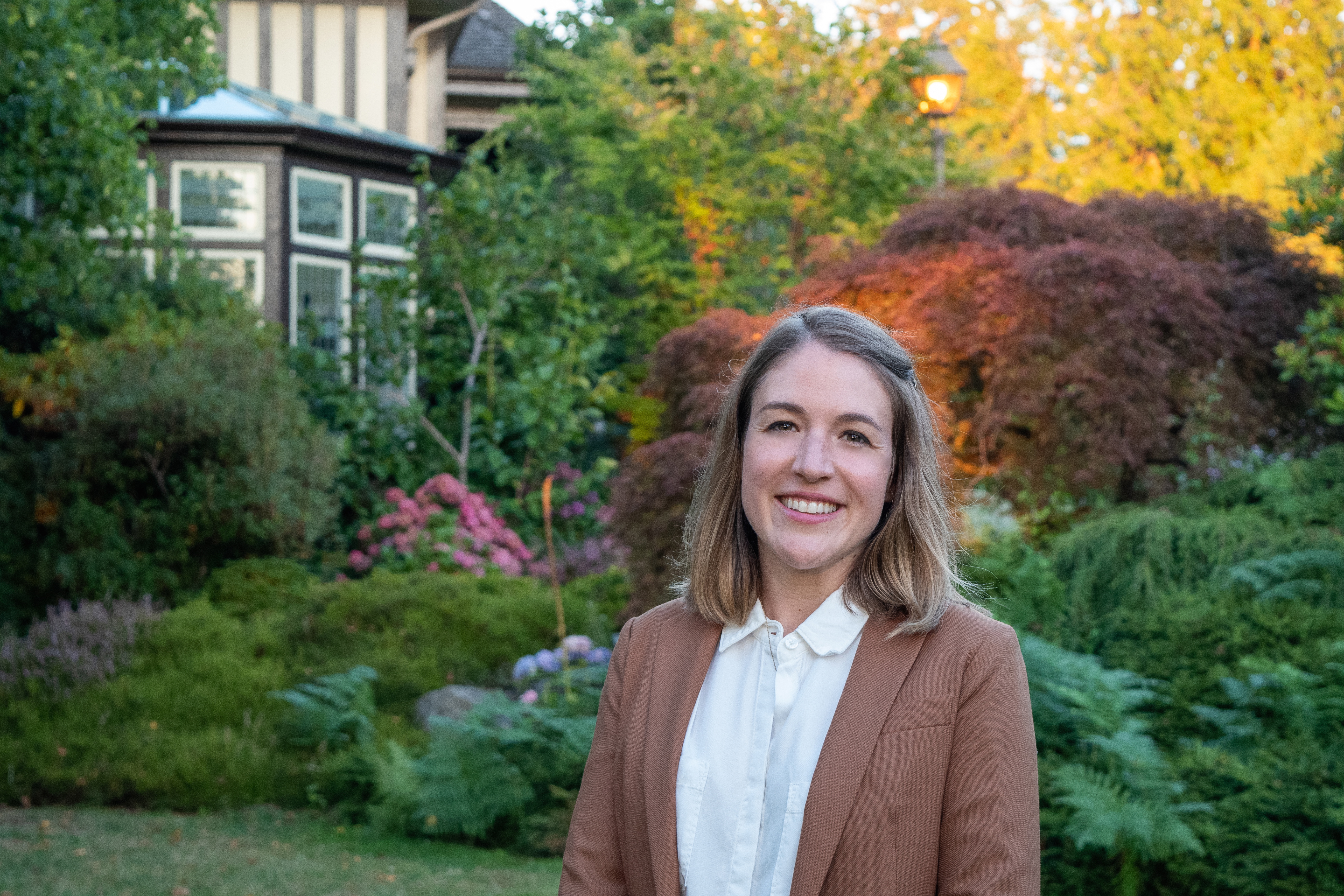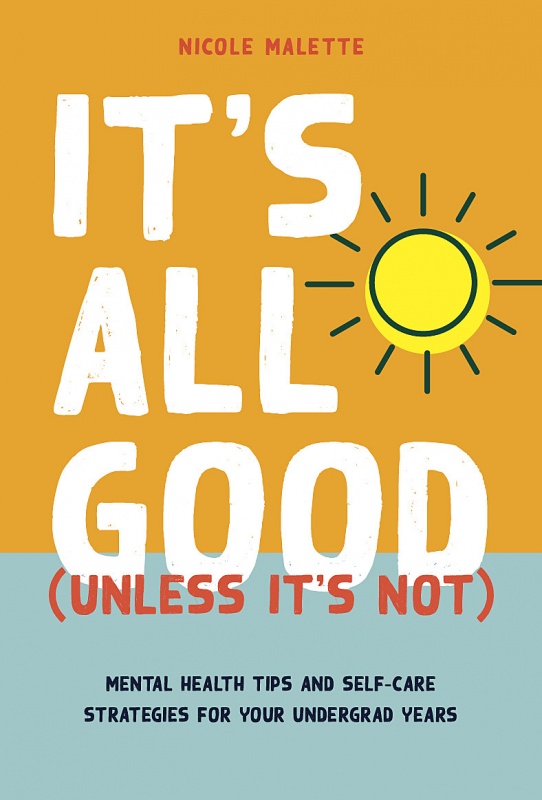Entering into an undergraduate program is an exciting time in anyone’s life. New opportunities to learn and grow are around every corner. But, the transition to living away from home and a busy school schedule is not always easy on one’s mental health. Furthermore, research shows few undergraduate students seek out help for mental health issues, such as depression and anxiety, when they need it.


UBC Sociology PhD candidate Nicole Malette
UBC Sociology PhD candidate Nicole Malette has been researching mental health how undergraduates students access services. Her new book, It’s All Good (Unless It’s Not), unpacks common university challenges and when and where to go for help. It is now on the shelves at Chapters/Indigo.
We spoke to Nicole about her research and what it means for students coming into their undergraduate degrees during COVID-19.
Who is your book for and why is it important?
This book is intended to be a resource for Canadian undergraduate students or high school students planning to go to university or college. It is important because the majority of undergraduate students who experience mental illness never seek help. Two reasons students don’t reach out are a lack of mental health literacy and stigma about mental illness itself. Through a review of student mental literature, my book unpacks these problems and helps students better understand when and where to go for help.


On the shelves Sept. 1, 2020
What recommendations do you have for students going into university this fall?
Transitioning to university life can be hard at the best of times. And the 2020 generation of undergrads are going to be facing a whole new set of challenges. With the continuing restrictions necessary under a COVID-19 pandemic, they will need to balance academic commitments, university deadlines, and new online programming without the freedom of moving away from home, meeting new people, or face-to-face interaction with university staff.
My recommendation for students is to have some compassion for yourself. Learning how to do new things takes time and energy (and sometimes a few mistakes). Reflect on the challenges you’re facing and don’t be afraid to ask for help when you need it. There are people in your life and on-campus who care about you and are ready to help (even if they don’t know who they are yet). I want undergraduate students to realize this and feel comfortable reaching out to others when they are struggling.
The other main recommendation I make with this book is that we all need to work to develop better mental health literacy. In this book, I talk about common mental illnesses undergraduate students experience, where they can go for help, and what that help might look like. Through these conversations, I hope that students can gain a better understanding of what mental illness is and how stigma interrupts their help-seeking behaviours. By talking openly about mental health problems in informed and compassionate ways, we make things easier for everyone.
Sources of undergraduate distress mentioned in your book include social isolation, academic stress, parental pressure, and financial difficulties; issues that have no doubt been exacerbated in recent months, what solutions did you discover and how might they evolve because of COVID-19?
I think two of the biggest challenges students working from home might encounter are increased social isolation and parental pressures. It’s hard to feel connected to a campus when you’re accessing it remotely. It’s not easy to feel like you belong with a group of people when you can’t spend time with them. Regardless of the situation, having friends is essential to wellbeing.
One way students can stave off isolation is by joining on-campus clubs remotely. Many of the usual student clubs are hosting online events and social gatherings. If you’re having trouble connecting with people of similar interests, while you’re stuck at home, this can be a good way to meet new people. If you want to meet people closer to you, try volunteering in your community. This is a good way to engage in social interaction in a safe environment. Other than remotely joining campus clubs or volunteering, this is also a time to lean on your pre-existing friend networks and family members for social support.
Another challenge you might encounter is balancing parental pressure. Since you’ll be studying at home it might be more difficult to separate your family life from your school time. You might also notice that your parents feel the need to make more comments about your study habits or ask about your grades. To maintain a healthy relationship with your family when it comes to your academic performance discuss the issue openly with them, only if you want to. You are not obligated to share your grades with your parents, even if they are paying tuition. However, if you do want to chat with them about your academics, finding out what the averages are (from your department or a faculty member) and sharing them with your parents might help keep things in perspective.
In my book, I also outline research-based methods for managing healthy conversations with your family members around your academics.
How could an undergraduate student plan to perform better self-care?
Self-care is any action or steps you take in your day-to-day life to maintain wellbeing. In my book, I talk about a number of self-care strategies students can incorporate into their day-to-day life. For example, research demonstrates that things like engaging in regular exercise, keeping a healthy, balanced diet, maintaining a regular sleep schedule, and getting outside more can all have positive impacts on your mental health.
Are there steps they can take to make sure they can access the services they need?
There are a number of steps students can take to access the services they need. First, students will need to recognize the challenges they are encountering. Are they having trouble understanding course material, meeting academic deadlines, or balancing their finances? How are they managing family expectations or building relationships with others? Are they dealing with discrimination or coping with the symptoms of a mental illness?
Sometimes recognizing these things can be hard to do alone and students might need to talk to a friend, family member or teaching assistant to fully understand the particular issue they are facing (if they feel comfortable doing so).
Once they’ve identified the problem, the next step is identifying the resources available. Throughout my book, I list resources for common undergraduate problems available across Canadian university settings. If help isn’t available to them on-campus, I’ve also outlined additional community-based resources available to students by province. It is my deepest hope that students find these resources helpful.


